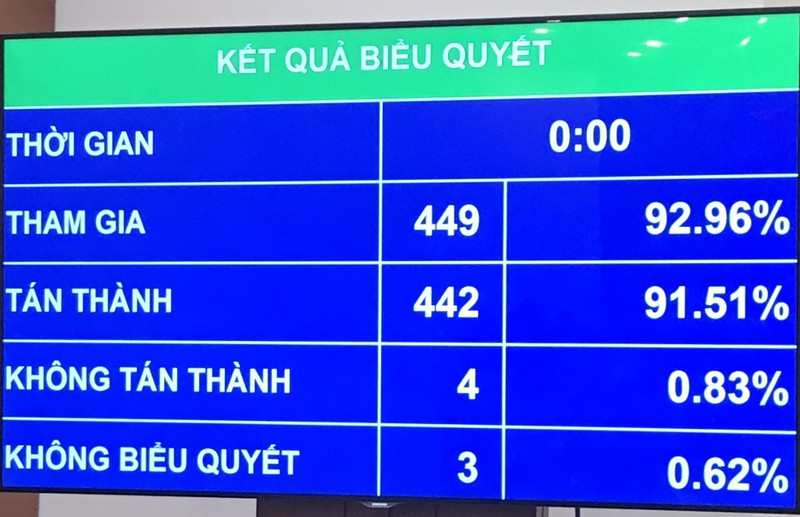Vietnam parliament approves special finance-budget mechanism for Hanoi
Under the decision, the Hanoi People’s Council is now authorized to levy new fees and charges in the city, and adjust the existing fees and charges.
The National Assembly (NA) today [June 19] approved a special finance-budget mechanism with more autonomy for Hanoi.
| The National Assembly (NA) has approved the special finance-budget mechanism for Hanoi with the backing of 91.51% of its deputies present. |
Under the decision, the Hanoi People’s Council is now authorized to levy new fees and charges in the city, as well as adjust the existing fees and charges.
Moreover, 100% of the revenue from the newly levied fees and charges will go to the city’s budget for future investment in socio-economic infrastructures, science and technological activities, education and healthcare, among others.
The new mechanism also allows Hanoi to retain 50% of the receipts from the sale of state-owned properties; 100% of proceeds from the divestment and privatization of state-owned enterprises.
Chairman of the NA Finance-Budget Committee Nguyen Duc Hai said while some deputies suggested the NA to reconsider the authorization for Hanoi to levy fees and charges, the NA Standing Committee opted to give Hanoi’s full authorization as it did recently to Ho Chi Minh City.
At that time, the Ho Chi Minh City People’s Council raised parking fees from VND5,000 (US$0.21) per car to VND30,000 (US$1.29) per hour; adjusted the environmental protection fees for industrial waste water and tuition fees, among others.
“The decision would ensure Hanoi’s leaders to have sufficient flexibility and decision making power in management,” Hai said.
Meanwhile, others expressed concern that allowing Hanoi to retain a 50% of revenue from sales of state-owned properties would erode the state budget.
Regarding this issue, Hai said government agencies subject to relocation are entitled to 70% of the revenue from the sale of their former offices to fund the new ones, which means only 30% are paid to the state budget.
Hai added the 50% amount received by Hanoi, therefore, would not have big impacts on the state budget revenue in the short term, while it encourages local governments and other agencies to improve efficiency in public asset management.
Additionally, Hanoi would have more resources to address issues related to urban planning and technical infrastructure development.












